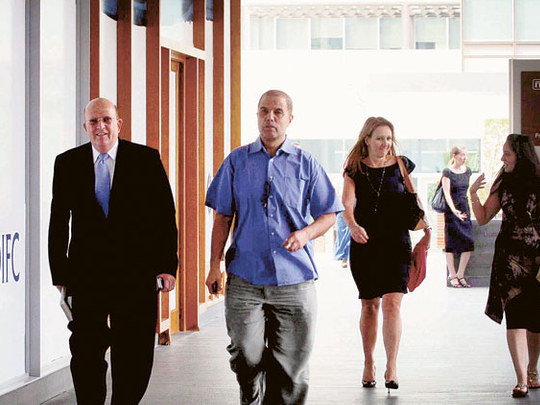
Dubai The Dubai International Financial Centre (DIFC) said Tuesday the number of companies operating from the financial services free zone increased seven per cent in 2011.
The number of active companies increased to 848 last year from 792 in 2010.
The centre is seeing increased interest from Asia, Middle East, Europe and the Americas, DIFC officials said.
"DIFC's achievements in recent years underscore our emergence as a global hub of finance and business. Our world-class infrastructure and common-law jurisdiction provide a stable platform for global and regional firms to access the region's emerging markets," said Abdullah Mohammad Al Awar, CEO of DIFC Authority.
For the current year, DIFC officials expect strong net growth in the number of companies joining the DIFC business community with an average annual growth of 20 per cent over the next five years.
Strengthening position
"We have the potential to double in size in the next five years, contributing to economic growth in the UAE and the region as a whole," Al Awar said.
Despite the impact of the European debt crisis, the global economic downturn and the regional changes witnessed last year, DIFC continued to strengthen its position as the leading international financial centre in the region.
Last year the number of employees working in the DIFC was around 12,000.
More than 36 per cent of companies in the DIFC were from Asia and the Middle East while Europe accounted for 37 per cent and 17 per cent were from North America.
DIFC issued 135 new commercial licences in 2011, 71 of which were registered in the second half of the year, a 19 per cent increase over the 113 registrations in 2010.
Positive impact
Last year, the centre welcomed 41 new regulated companies including BNP Paribas Wealth Management, Bank Vontobel Middle East Ltd, Paladin Capital Group, Jefferies International Limited and Attijariwafa Bank.
In addition, 70 more non-regulated companies and 24 more retailers joined the DIFC business community.
"Despite the global uncertainties and regional political turmoil we continued to implement our strategy, which is largely focused on building a business ecosystem that supports the business aspirations of our clients," said Kevin Birkett, DIFC head of financial services.
Officials said the Arab Spring had a positive impact on DIFC with more international and regional institutions opening businesses in the centre.
"We have seen an increase in the number of regional institutions applying for DIFC licences last year.
"However we do not see this as a direct fall-out of the regional political turmoil forcing some institutions to move from one location to another.
"On the contrary, we believe many in the financial services industry have begun appreciating the value proposition of being located in the DIFC," said Al Awar.
Last year, DIFC continued to reinforce its position as a global financial centre in the region between Europe and Singapore.
Dubai was ranked one of the top ten international financial centres (eighth) by The Banker (FT Business) out of 53 international financial centres, based on the level of international business and the value offered to international institutions.











